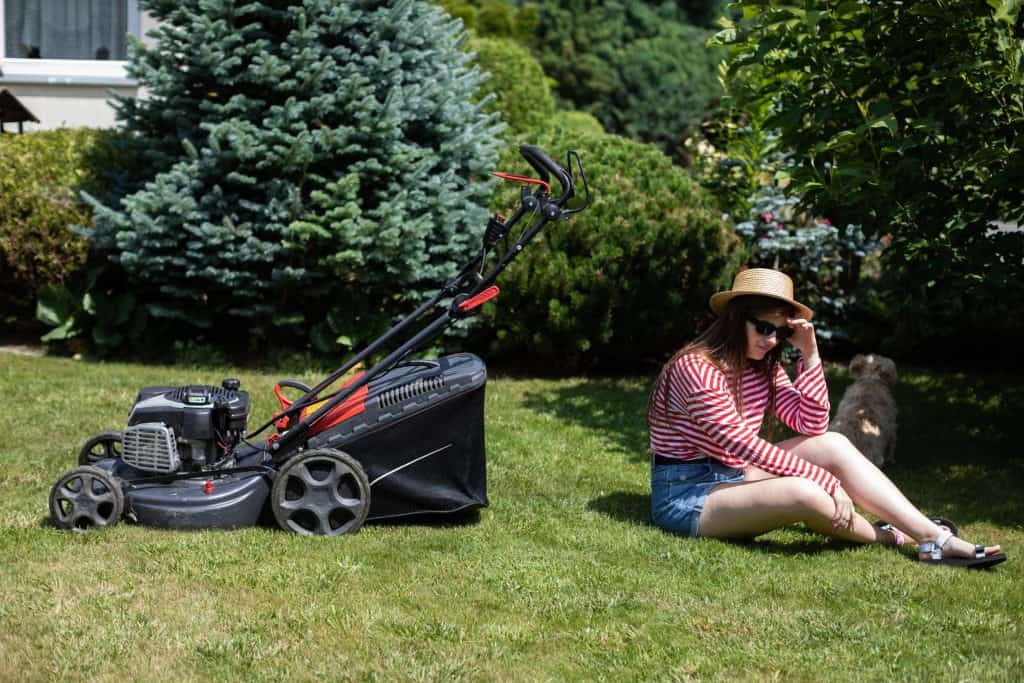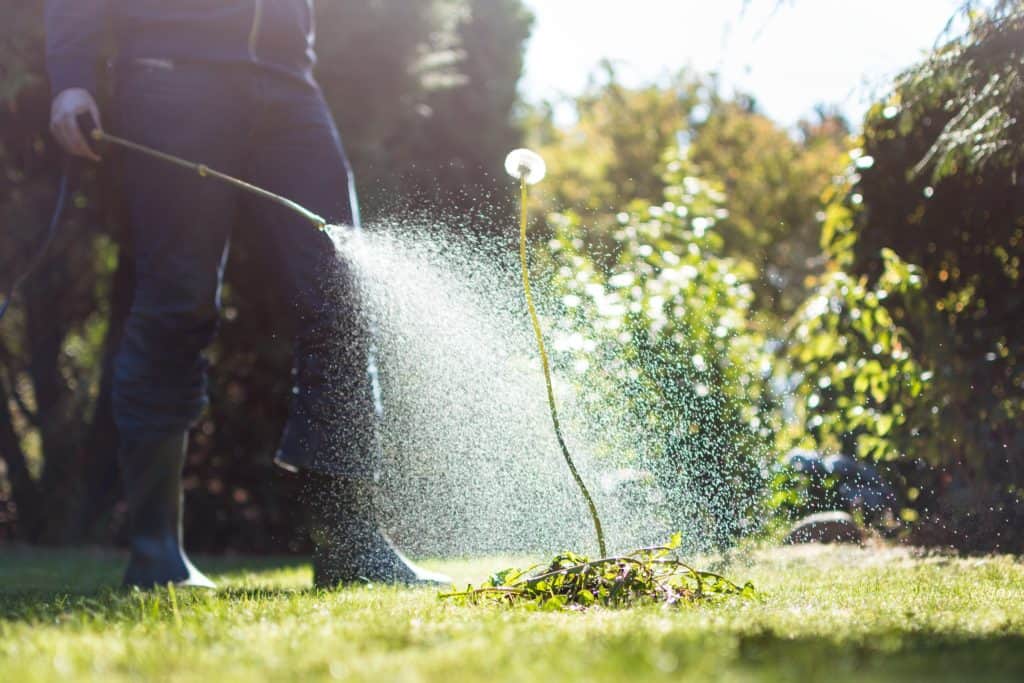While the use of machines might make this task seem simple, that couldn’t be further from the truth. We’re here to clarify that misconception: mowing the lawn while pregnant will be a long, exhausting task that could easily go wrong in a number of ways, all devastating for your pregnancy.
Lawnmowers are industrial tools that need focus and training to operate, with misuse leading to serious injuries. You’d also have to contend with the strain of the task itself while operating, alongside the possibility of dehydration, fatigue, or heatstroke.
It would also expose you to the treatments the lawn has been given – pesticides, insecticides, and fertilizer. Even brief exposure to these could lead to long-term pregnancy complications, so we’d strongly advise that you never mow the lawn while pregnant!
It’s already an exhausting chore, but trying to mow the lawn while pregnant is a recipe for disaster. If you have to do it now, find someone else to do it for you! If you can’t, leave the lawn be! Mowing the lawn while pregnant is the last thing you want to do – we’ll go over why down below.
What’s Risky About Mowing the Lawn While Pregnant?
Physical Strain/Injuries

Some lawnmowers are manually operated and require someone pushing them along to clear the excess grass. The user ends up spending upwards of an hour in a standing position, which won’t be ideal for mothers – especially ones with back pain, or those in the late stages of pregnancy.
Other lawnmowers use powered engines, which propel tough, spinning blades to handle the task. The engines run hot – causing discomfort in close proximity, and even burning you on contact. Loose debris may also get caught and launched by the whirring blades, which can lead to cases of injury and property damage.
On top of all that, mowing the lawn leaves you exposed to the elements for the duration of the task. Just like how axe throwing while pregnant isn’t recommended due to the physical demands and potential risks, you might even end up neglecting your own thirst or exhaustion to wrap things up fast when mowing, which would be a horrible choice for pregnant women.
While pregnant women are still capable of the task, it’ll still be a strenuous affair at the best of times. You can make it safer, but the fatigue – coupled with the exposure to outside elements – makes this a chore that’s best relegated to others for the time being.
To reiterate, mowing the lawn while pregnant can only be made safer – not safe, and never safe enough. Spare yourself the hassle and don’t put your pregnancy at risk.
Chemical Exposure

Most homeowners make generous use of chemicals such as pesticides, herbicides, or fertilizers to treat their lawns. A pregnant woman mowing the lawn would end up exposed to all of these, which runs the risk of seriously hampering their baby’s condition.
In particular, exposure to these elements could lead to stunted development, birth defects, or even miscarriage. Your baby is particularly susceptible to these toxic compounds during the first trimester of pregnancy, so bear that in mind.
Some of these toxic compounds can also be passed through a mother’s breastmilk, so you won’t be in the clear just because you already gave birth. Don’t be ashamed to let the rest of the household handle this for you – especially if you know that your lawn has been treated with chemicals.
Your lawn may also accumulate other contaminants over time – notably after rainy days. All sorts of bacteria could gather and propagate, and since mowing the lawn would put you in close proximity to that for a long time you’d have a greater risk of exposure and eventual infection.
Of note is Leptospira, a bacteria that thrives in damp areas that causes leptospirosis in humans and dogs. This disease is characterized by high fevers, abdominal pain, jaundice, and vomiting.
These are already awful to deal with, but pregnant women are in particular danger here – leptospirosis has been linked to serious pregnancy complications, including fetal deaths.
Leptospirosis is often transmitted through contaminated animals – and primarily through their urine. Leptospira bacteria can linger for months, so hosing it down with water won’t cut it. If you smell anything like that nearby, spray the area with an antibacterial disinfectant solution.
Final Thoughts
Mowing the lawn while pregnant can go wrong in a large number of ways – a lot of these means will be difficult to control, and some will just be out of your hands entirely.
While pregnant, you want to minimize your risk of overexerting yourself. You also want to avoid spending time near potential infection vectors.
These two goals are often at odds with mowing the lawn, especially if you’re doing so on your own. Think of your child’s health first and play it safe – there’s no rush to mow your lawn here.

